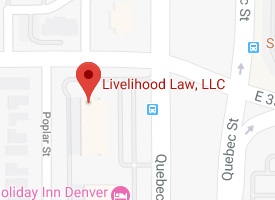
What a POWR Move: Major Changes to Colorado Employment Law
During the 2023 Colorado Legislative session, the General Assembly passed the Protecting Opportunities and Workers’ Rights (POWR) Act (SB23-172). The POWR Act makes significant changes to the Colorado Anti-Discrimination Act (CADA), Colo. Rev. Stat. § 24-34-401 et seq., that provide workers with greater protections against workplace discrimination and harassment. Rachel Ellis was honored to be part of this legislative effort.
The Act goes into effect on August 7, 2023. It is not retroactive; the additional protections provided by the POWR Act apply to employment actions that occur on or after August 7.
POWR makes big improvements to Colorado employment law.
- A New Modern Definition of Harassment
Most notably, POWR explicitly rejects the long-standing “severe or pervasive” standard for workplace harassment claims and adopts a standard that prohibits unwelcome conduct.[1] Previously, an employee had to prove that the harassment they suffered was severe or pervasive to prevail on their CADA claim.
The severe or pervasive standard has been a hurdle to plaintiff-employee’s legitimate claims of workplace harassment. If a court found that the harassment did not occur frequently enough or was not extreme enough, the severe or pervasive standard essentially provided a safe harbor for harassers. POWR lowers the hurdle employees must clear to succeed on their workplace harassment claims.
As of August 7, 2023, the definition of harassment in Colorado is any unwelcome conduct or communication directed at an individual based on their actual or perceived membership in a protected class.[2] The unwelcome conduct must be both subjectively offensive to the individual and objectively offensive to a reasonable individual who is a member of the same protected class.
Specifically, workplace harassment violates CADA if:
- Submission to the conduct or communication is explicitly or implicitly made a term or condition of the individual’s employment;
- Submission to, objection to, or rejection of the conduct or communication is used as a basis for employment decisions affecting the individual; or
- The conduct or communication has the purpose or effect of unreasonably interfering with the individual’s work performance or creating an intimidating, hostile, or offensive working environment.
Despite removing the severe or pervasive standard, POWR still seeks to maintain a balance between protecting employees from harassment and protecting employers from frivolous harassment claims. Thus, the Act specifies that “petty slights, minor annoyances, and lack of good manners do not constitute harassment” unless, in the totality of the circumstances, they meet the standard for harassment, as defined above. It is a common tactic for Employers to argue that harassment is really just bad manners, but this change in the law will help employees fight back.
Additionally, POWR limits the circumstances under which an employer can assert an affirmative defense to a harassment claim. (An affirmative defense is when the employer has violated the law but there is an excuse that lets them get off the hook anyways.) An employer may only do so if it has a program that addresses workplace harassment, it has communicated that program to all employees, it investigates and addresses complaints of workplace harassment, and the employee alleging harassment “unreasonably failed to take advantage of the employer’s program.” This is a big deal, because employers always say they have a policy against discrimination and harassment, but we know that a policy is worthless if no one can find it or the company doesn’t follow it.
- Marital Status is a Protected Class
POWR adds marital status as a protected class under CADA. This makes it illegal for an employer to discriminate against an individual by refusing to hire, discharging, or demoting that individual based on their marital status. Likewise, an employer cannot harass an individual because of their marital status. If an employee reports a concern about discrimination or harassment based on their marital status, the employer cannot retaliate against that employee for reporting their concern.
However, it is not an unfair or discriminatory employment practice to discharge an employee or refuse to hire an applicant where (A) One spouse directly or indirectly would exercise supervisory, appointment, or dismissal authority or disciplinary action over the other spouse; (B) One spouse would audit, verify, receive, or be entrusted with moneys received or handled by the other spouse; or (C) One spouse has access to the employer’s confidential information, including payroll and personnel records.
- New Standard for Disability Discrimination
Under CADA, an employer cannot discriminate against an employee because of their disability. The employer must make reasonable accommodations that allow the employee to perform their job. However, prior to the POWR Act, an employer could justify its employment decision regarding a person with a disability if the person’s disability “has a significant impact on the job.” This phrase was historically used by employers to perpetuate discrimination.
POWR broadens the protections for employees with disabilities. It provides that it is only allowable for an employer to make such an employment decision based on the individual’s disability “if there is no reasonable accommodation that the employer can make with regard to the disability that would allow the individual to satisfy the essential functions of the job and the disability actually disqualifies the individual from the job.”
- Nondisclosure Agreements are Frowned Upon
POWR creates a presumption against nondisclosure agreements that limit an employee’s ability to disclose “any alleged discriminatory or unfair employment practice.” Beginning August 7, 2023, a nondisclosure provision is void unless the following conditions are met:
- The nondisclosure provision applies equally to the employer and employee;
- It expressly states that it does not prevent the employee from disclosing the underlying facts of the alleged discrimination, including the existence and terms of a settlement agreement to the employee’s family or counselors, government agencies, or legal representatives;
- It also expressly states that disclosure of the underlying facts does not constitute disparagement;
- If there is a non-disparagement clause and the employer disparages the employee, the employer cannot then enforce the non-disparagement clause against the employee;
- Any liquidated damages provision cannot be used punitively and must be reasonable; and
- The agreement includes an addendum certifying that it complies with these requirements.
If a nondisclosure provision violates these requirements, the employer is liable for actual damages and a penalty of $5,000 per violation. Any employee who is presented with an illegal nondisclosure agreement can immediately bring an action against the employer.
- New Recordkeeping Requirements for Employers
Last, but not least, the POWR Act requires employers to keep accurate employment records about accommodation requests, reports of discrimination or harassment, application forms, employment decisions such as hiring, firing, promotion, demotion, compensation, and training. The employer must keep these records for at least five years.
The Act further specifies that employers must “maintain an accurate, designated repository of all written or oral complaints of discriminatory or unfair employment practices.” This repository must include the date of the complaint, the complaining party, if known, the alleged perpetrator, and the substance of the complaint. This is a major improvement in Colorado law, because employers almost always begin their defense by saying that no one else has ever complained about discrimination and harassment, even if that isn’t true. The dirty tactic of losing prior complaints about discrimination or harassment is no longer legal in Colorado.
The POWR Act is a major win for employees in Colorado. Nevertheless, navigating the ins and outs of a discrimination or harassment case can be extremely difficult to do without legal counsel. Livelihood Law has extensive experience representing clients that have suffered harassment or been discriminated against at work. We are here to make sure that your rights are protected. Contact us today to find out what your options are and to protect your rights.
[1] The “severe or pervasive” standard remains for federal employment claims, such as those brought under Title VII.
[2] Protected classes include disability, race, creed, color, sex, sexual orientation, gender identity, gender expression, marital status, religion, age, national origin, and ancestry.


